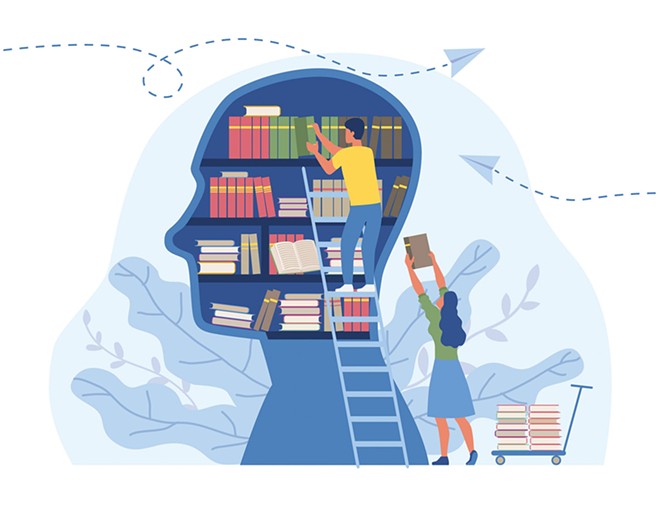As we consider infrastructure spending, we should look beyond bridges and roads. We might think of the human brain as democracy's infrastructure. To protect American democracy, we should create an education system that helps all students transcend ignorance and gullibility.
We must protect America from the fraudulent claims of charismatic charlatans, paranoid conspiracy theorists, science deniers, malignant narcissists, corrupt politicians and authoritarian leaders. Our democracy is fragile. Our planet is threatened. It is time to invest in education at every level.
These ideas were in my letter published in The New York Times more than two years ago and are even more relevant today. We must create an educational system that would generate a citizenry capable of recognizing and resisting the fraudulent manipulations that characterize our contemporary society.
We can design stronger educational programs to help students recognize fake news, propaganda and fraudulent conspiracy theories. We can learn from each other and from other countries.
Finland, for example, ranks first of 41 countries in Europe on a measure of resilience against misinformation among its students. Finland has a strong education system, including free college, but also makes a concerted effort to teach students about fake news at every level. Media literacy is part of the national core curriculum starting in preschool.
Last year the American Psychological Association's website included a brief article on Fighting Fake News in the Classroom. Most psychology departments in our universities now offer courses that would be helpful in teacher education programs. John Petrocelli's The Life-Changing Science of Detecting Bullshit (2021) offers a fascinating perspective on the subject. Simon Winchester's Knowing What We Know: The Transmission of Knowledge from Ancient Wisdom to Modern Magic (2023) and Neil Postman's Amusing Ourselves to Death: Public Discourse in the Age of Show Business (1985) should be considered as required reading for all who are involved in educating teachers.
Teachers will need to stay well ahead of their students in understanding the uses and abuses of social media. While artificial intelligence (AI) has the potential to revolutionize many aspects of education at every level, it also offers the potential for even greater abuse by those who wish to manipulate the ignorant for political or other corrupt purposes. Colleges and universities will need to focus significant attention on teacher education as they develop AI education policies and practices. Every public school teacher in America will deserve a significant salary increase.
American democracy can be protected and strengthened if we focus our attention on education at every level. Such reforms will require a significant commitment of time and resources. We can restore honesty, civility and decency. In the short term, our efforts will require urgent political action. We must elect honest, competent leaders. If we remain optimistic, I believe we can create a future that inoculates our citizens against the ravages of ignorance and gullibility.
Ron Ettinger of Springfield received a Ph.D. in clinical psychology from Purdue University in 1969, followed by a postdoctoral research fellowship at York University in Toronto. He started teaching at Sangamon State University in 1972 and retired from University of Illinois Springfield in 2001. He worked briefly as a lobbyist for the Illinois Federation of Teachers before receiving an appointment to the Illinois Educational Labor Relations Board in 2004 where he served for 10 years.


















